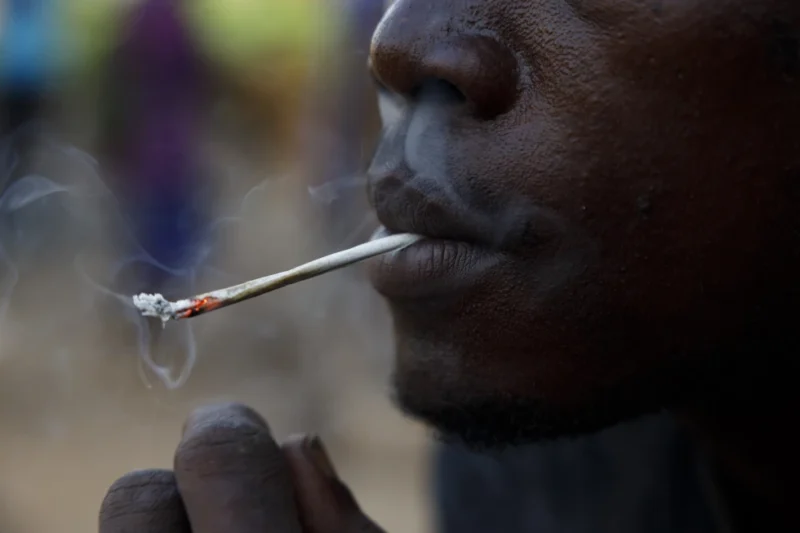A synthetic drug ravages youth in Sierra Leone. There’s little help, and some people are chained
Share
Explore Our Galleries
Breaking News!
Today's news and culture by Black and other reporters in the Black and mainstream media.
Ways to Support ABHM?
By Kemo Cham, The Associated Press

In Sierra Leone, a cheap, synthetic drug is ravaging youth. Trash-strewn alleys are lined with boys and young men slumped in addiction. Healthcare services are severely limited. One frustrated community has set up what it calls a treatment center, run by volunteers. But harsh measures can be used.
The project in the Bombay suburb of the capital, Freetown, started in the past year when a group of people tried to help a colleague’s younger brother off the drug called kush. After persuasion and threats failed, they locked him in his room for two months. It worked. He has returned to university and thanked them for setting him free.
“The only time I left the room was when I went to the bathroom,” Christian Johnson, 21, recalled. He said he was motivated to kick the drug by thoughts of his family, the fear of becoming a dropout and the abandonment by many of his friends.
The volunteers then expanded the effort and took over an abandoned building. They seize people at families’ request and sometimes chain them to prevent them from escaping — an echo of a practice the West African country’s only psychiatric hospital previously used. There’s little padding against the concrete floor and walls, and little to do beyond confronting their craving.
“We turn parents away for lack of space,” said Suleiman Turay, a local football coach who helped launch the center. “The people in the community cooperate and help in their own individual ways. Some bring food, some bring water, doing whatever they can to help.” A doctor in the community visits from time to time. Police said they were not aware of the project or the practice of chaining people.
So far, the Bombay Community has treated 70 to 80 people, volunteers said. One showed the chains used in extreme cases, although no one was chained at the time. The youngest held was a 13-year-old boy sent there by his father.
“I was very angry, and I wanted to have nothing to do with him,” said the father, Gibrilla Bangura, a college lecturer. “I am very grateful to these men and women for their role in helping my son.”
Read other Breaking News here.
Explore our virtual exhibit galleries here.









Comments Are Welcome
Note: We moderate submissions in order to create a space for meaningful dialogue, a space where museum visitors – adults and youth –– can exchange informed, thoughtful, and relevant comments that add value to our exhibits.
Racial slurs, personal attacks, obscenity, profanity, and SHOUTING do not meet the above standard. Such comments are posted in the exhibit Hateful Speech. Commercial promotions, impersonations, and incoherent comments likewise fail to meet our goals, so will not be posted. Submissions longer than 120 words will be shortened.
See our full Comments Policy here.